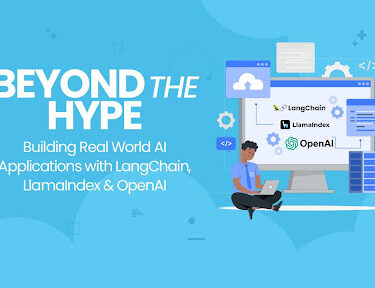The Information Technology domain has reached a tipping point that has encouraged CEOs and CIOs to identify how AI can fast-track their digitalization journey. Disruptive technologies like AI continue to disrupt the corporate world. The involvement of AI in the testing realm is quintessential to make the testing processes streamlined and manageable. Modern-age enterprises thrive to achieve seamless scalability and performance efficiency in their day-to-day testing workflow. AI seems necessary as the development of software products has got more complex, code testing has become more challenging.
AI plays a pivotal role in increasing the pace of software development along with Agile and DevOps practices. AI aids businesses that do a real-time risk assessment in the software delivery cycle with the power of DevOps and Continuous Delivery. To effectively meet futuristic market needs, enterprises must underpin the power of predictive technologies to enhance traditional software testing solutions. Automation testing services companies are catering to the testing needs of every sized company from startups to enterprises. The next signpost takes the industry towards harnessing the power of AI and software testing. Let’s check out what impact AI has made in the world of software testing.
Table of Contents
#1 AI to Accelerate and Automate the Testing Process.
Future-gen technologies like AI and ML are deployed in the software testing processes to boost the efficiency of the entire software development life cycle. IT companies leverage the skills of AI/ML professionals to apply technology solutions that solidify the traditional software testing processes. AI injects automation and reduces the number of mundane tasks involved in the development and testing stages. AI algorithms can identify, capture, and gigantic data set to fast-track the testing process. Robustness, cost, and efficiency matter when it is about testing software codes. AI adds value after analyzing the current test status, code changes, and other code markers, it finalizes which tests to run, and then performs them. AI’s automated testing automates a huge part of the testing workload that was previously done manually and removes the burden of repetitive tasks along with enhancing the coding accuracy. Having said that, QA automation testing services are getting a lot of traction to fast-track the involvement of AI in testing.
#2 AI to Identify and Eliminate Bugs
Bugs are inevitable in software development processes. Bugs not only hinder the purpose of delivering superior user experience but also put software testing on hold if they go undetected or entered the program. AI and ML algorithms help development teams to identify, discover, and eliminate bugs in the codes. IT companies save time and resources by automating the bug addressing processes rather than doing it manually. Along with testing for bugs, AI identifies errors and minor corrections that are required to enhance the code further. IT companies use the insights drawn from AI to identify bugs in the development process and to analyze if further coding modifications are required to prevent bugs from entering the program.
#3 AI to Empower and Improve Testing Capabilities.
AI boosts accuracy in testing and allows efficient decision-making by encouraging engineers to invest more time on strategic tasks and improves testing capabilities. It is challenging for testers who are into manual testing to fulfill every demand associated with every test, as there are different tests at every stage of software development. Besides analyzing the program behavior, AI aids manual testers as well. AI empowers various tests at every stage to ensure reliability and ML creates a set of instructions to develop test data. There is no room for ambiguities in the data results that are generated by AI which give developers a holistic view towards all such changes that need to be executed. AI assists developers by shedding light on where testing is required and by locating current glitches in the system. As AI algorithms are powerful analyzation tools, these algorithms are capable of predicting future issues which can enhance the efficiency during the testing periods.
The involvement of artificial intelligence in testing will act as the frontier of evolution.
AI along with ML automates repetitive and cumbersome tasks that are involved in the development and testing processes. These technologies facilitate all the IT teams by offering a dynamic framework that can root out errors as soon as detected. Having said that, AI applications in software testing tools intend to make the software development lifecycle easier. AI is not in its nascent stage anymore; rather it is capitalizing on its potential to reshape software development. If AI solutions are executed effectively in the processes, businesses can boost efficiency, and provide exquisite experiences to the stakeholders with superior automation testing services. Moving ahead in the curve of digital transformation, testers are all set to get started with AI bots to lighten up the workloads during the software development.
Author Profile
Martin Moyers is a business analyst and an avid tech blogger who is associated with Zymr, Inc. He is obsessed with AI-ML, cloud technologies, and the universe of social media. In his leisure time, he enjoys rafting, sailing, and hiking.




